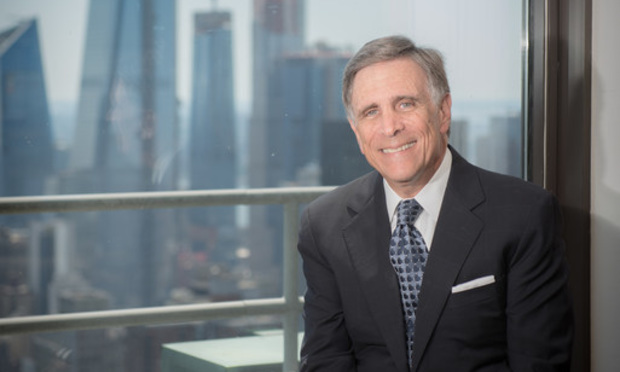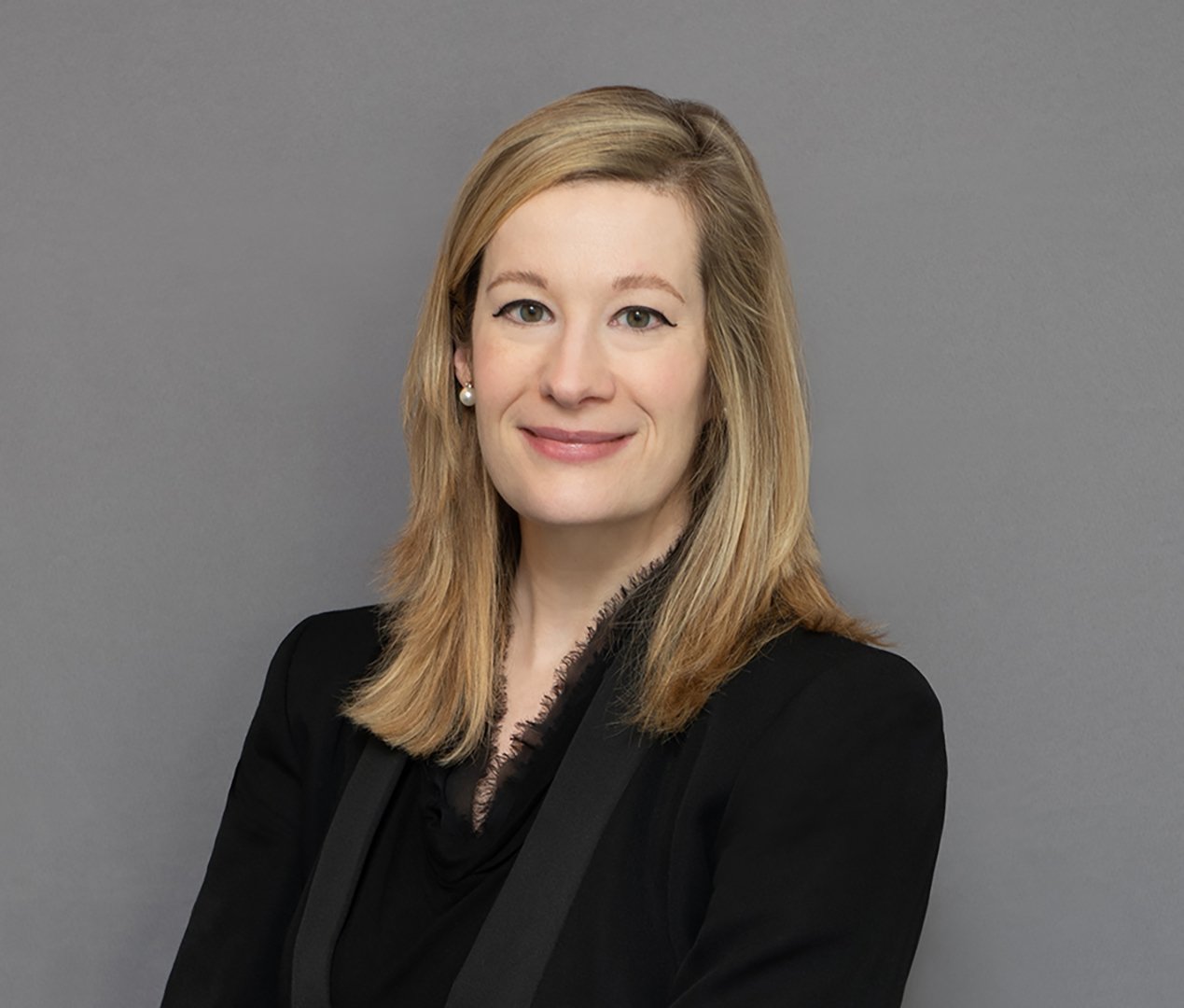Qualcomm to Judge Curiel: Never Mind About Patent Infringement
Accusing Apple of "trying to destroy our business," the chip giant seeks to avoid patent exhaustion ruling by granting covenant not to sue.
October 29, 2018 at 01:57 PM
4 minute read
 Evan Chesler/courtesy photo
Evan Chesler/courtesy photo
Qualcomm is under antitrust pressure from the Federal Trade Commission and a class of 250 million cellphone purchasers in San Jose.
But on Friday the spotlight shifted to San Diego, where Apple Inc. and its contract manufacturers are seeking summary judgment that Qualcomm “double dips” by selling mobile phone chips and licensing the technology embodied in them, a cornerstone allegation in three ongoing antitrust suits against Qualcomm.
Apple argues that the Supreme Court's 2017 Lexmark decision made crystal clear that once a patentee's rights are “exhausted” on selling the patented product. Qualcomm, seemingly rattled by the argument, issued Apple a covenant in September not to sue for infringing all nine Qualcomm patents that Apple is seeking to invalidate. That covenant, Cravath Swaine & Moore partner Evan Chesler argued in Friday's hearing, renders Apple's exhaustion argument nonjusticiable.
“They're trying to destroy our business,” Chesler said at one point. But “the covenant is clear, it's dispositive on this, and respectfully, your honor, you have no jurisdiction to rule.”
Apple attorney Ruffin Cordell of Fish & Richardson complained that Qualcomm is playing a game of patent Whac-a-mole, putting the parties through claim construction and discovery and then pulling away the patents as trial approaches next year.
“It is something the court is going to have to grapple with. Mr. Chesler can't evade it,” Cordell said. Qualcomm is “deathly afraid that this court or any other would pass judgment on the exhaustion issue.”
But Chesler seemed to have a lot of authority on his side, notably Super Sack Manufacturing v. Chase Packaging from the Federal Circuit, and Qualcomm's own case against Broadcom in the Southern District of California, litigated by Chesler.
To top it off, Chesler sought to hoist Apple on its own petard, quoting one of Apple's own filings last year which stated that Qualcomm could grant a covenant not to sue “that would permanently moot any claim for infringement, pursuant to Super Sack.”
Cordell argued that the nine patents have long been at the forefront of Apple's and Qualcomm's licensing dispute, which is also part of the broader case before Curiel. Qualcomm can't get into a time machine and undo the leverage it gained from the nine patents in licensing discussions years ago, Cordell said. He also suggested its unseemly for Qualcomm to drop its claims of infringement after telling Curiel last year that “the house is on fire” and quick resolution of the case was critical.
At the same time, Apple seemed to hedge by asking Curiel to let it add a 10th Qualcomm patent to its summary judgment motion or, alternatively, grant leave to amend its complaint to add more Qualcomm patents if necessary.
Curiel didn't give away much at the hearing, though he did express a cautious measure of sympathy with Apple's position. He said Qualcomm's behavior reminded him less of Whac-a-mole and more of Peanuts' Lucy pulling away the football from Charlie Brown just as he's about to kick it.
“It does strike me that one could take the view” that Qualcomm has engaged in “gamesmanship,” Curiel said, noting the “significant amount of time” he and the parties spent preparing for the claim construction hearing and issuing the order.
“If Apple had come to us and said, 'We're going to litigate 3,000 patents,' the court would have said no,” he observed.
He told the parties he would try to rule in the next two weeks. Gibson, Dunn & Crutcher partner Jason Lo argued for Apple's contract manufacturers.
As for the “house on fire” line, Chesler noted that was in the context of Qualcomm's unsuccessful request that Curiel enforce the parties' contract during the litigation.
“It didn't save the day for me, but it was a memorable line, perhaps,” he said. “The house was on fire, and it's now done $7 billion in property damage.”
This content has been archived. It is available through our partners, LexisNexis® and Bloomberg Law.
To view this content, please continue to their sites.
Not a Lexis Subscriber?
Subscribe Now
Not a Bloomberg Law Subscriber?
Subscribe Now
NOT FOR REPRINT
© 2025 ALM Global, LLC, All Rights Reserved. Request academic re-use from www.copyright.com. All other uses, submit a request to [email protected]. For more information visit Asset & Logo Licensing.
You Might Like
View All

Lawyers Across Political Spectrum Launch Public Interest Team to Litigate Against Antisemitism
4 minute read
Jones Day Names New Practice Leaders for Antitrust, Business and Tort Litigation and Latin America

Supreme Court Denies Trump's Request to Pause Pending Environmental Cases
Trending Stories
- 1States Accuse Trump of Thwarting Court's Funding Restoration Order
- 2Microsoft Becomes Latest Tech Company to Face Claims of Stealing Marketing Commissions From Influencers
- 3Coral Gables Attorney Busted for Stalking Lawyer
- 4Trump's DOJ Delays Releasing Jan. 6 FBI Agents List Under Consent Order
- 5Securities Report Says That 2024 Settlements Passed a Total of $5.2B
Who Got The Work
J. Brugh Lower of Gibbons has entered an appearance for industrial equipment supplier Devco Corporation in a pending trademark infringement lawsuit. The suit, accusing the defendant of selling knock-off Graco products, was filed Dec. 18 in New Jersey District Court by Rivkin Radler on behalf of Graco Inc. and Graco Minnesota. The case, assigned to U.S. District Judge Zahid N. Quraishi, is 3:24-cv-11294, Graco Inc. et al v. Devco Corporation.
Who Got The Work
Rebecca Maller-Stein and Kent A. Yalowitz of Arnold & Porter Kaye Scholer have entered their appearances for Hanaco Venture Capital and its executives, Lior Prosor and David Frankel, in a pending securities lawsuit. The action, filed on Dec. 24 in New York Southern District Court by Zell, Aron & Co. on behalf of Goldeneye Advisors, accuses the defendants of negligently and fraudulently managing the plaintiff's $1 million investment. The case, assigned to U.S. District Judge Vernon S. Broderick, is 1:24-cv-09918, Goldeneye Advisors, LLC v. Hanaco Venture Capital, Ltd. et al.
Who Got The Work
Attorneys from A&O Shearman has stepped in as defense counsel for Toronto-Dominion Bank and other defendants in a pending securities class action. The suit, filed Dec. 11 in New York Southern District Court by Bleichmar Fonti & Auld, accuses the defendants of concealing the bank's 'pervasive' deficiencies in regards to its compliance with the Bank Secrecy Act and the quality of its anti-money laundering controls. The case, assigned to U.S. District Judge Arun Subramanian, is 1:24-cv-09445, Gonzalez v. The Toronto-Dominion Bank et al.
Who Got The Work
Crown Castle International, a Pennsylvania company providing shared communications infrastructure, has turned to Luke D. Wolf of Gordon Rees Scully Mansukhani to fend off a pending breach-of-contract lawsuit. The court action, filed Nov. 25 in Michigan Eastern District Court by Hooper Hathaway PC on behalf of The Town Residences LLC, accuses Crown Castle of failing to transfer approximately $30,000 in utility payments from T-Mobile in breach of a roof-top lease and assignment agreement. The case, assigned to U.S. District Judge Susan K. Declercq, is 2:24-cv-13131, The Town Residences LLC v. T-Mobile US, Inc. et al.
Who Got The Work
Wilfred P. Coronato and Daniel M. Schwartz of McCarter & English have stepped in as defense counsel to Electrolux Home Products Inc. in a pending product liability lawsuit. The court action, filed Nov. 26 in New York Eastern District Court by Poulos Lopiccolo PC and Nagel Rice LLP on behalf of David Stern, alleges that the defendant's refrigerators’ drawers and shelving repeatedly break and fall apart within months after purchase. The case, assigned to U.S. District Judge Joan M. Azrack, is 2:24-cv-08204, Stern v. Electrolux Home Products, Inc.
Featured Firms
Law Offices of Gary Martin Hays & Associates, P.C.
(470) 294-1674
Law Offices of Mark E. Salomone
(857) 444-6468
Smith & Hassler
(713) 739-1250






